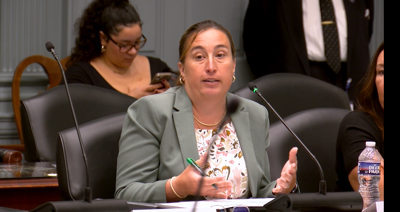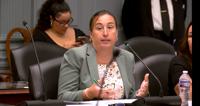DOVER, Del. — A special committee of Delaware lawmakers continued their examination of the state's county-wide property reassessments Tuesday, with testimony from Kent and Sussex County leaders underscoring sharp differences between their approaches and the one taken in New Castle County.
The joint bipartisan committee, made up of state senators and representatives, convened in Dover for the second of four scheduled hearings to review reassessment practices, impacts on people who live in each county, and possible tax relief measures.
During the hearing, Kent County Administrator Kevin Sipell and Sussex County Administrator Todd Lawson shared timelines and outreach strategies their counties used during the first reassessment process in more than 40 years. Committee leadership said the two's remarks emphasized proactive public engagement, including mailers, town halls, online tools, and extended appeals windows.
In contrast, legislators criticized the communication and timeline followed in New Castle County’s reassessment process, with some lawmakers saying the lack of transparency left school districts and residents in the dark.
“It’s clear that transparency and consistent communication were priorities for Kent and Sussex counties throughout their reassessment processes,” said Rep. Kim Williams. “Unfortunately, New Castle County skipped this step and did not engage with stakeholders such as New Castle County legislators, school districts, and most importantly, our constituents."
Kent County completed its reassessment in 2024, mailing tentative value notices in late 2023. Between that and the finalization of values in spring 2024, officials held hearings and adjusted parcel data where appropriate.
Sussex County followed a similar path, collecting data and holding town halls as early as 2021. Tentative values were sent in November 2024, and final values were issued in June 2025 after a public outreach campaign that included calculators, videos, and multiple public sessions. In Sussex County, while some bills were much higher, many tax bills actually went down after reassessment.
By comparison, the committee says New Castle County data collection ended in November 2024, and value notices weren’t sent until mid-November. Committee members said that timeline limited the public’s ability to respond and appeal. Final property values were mailed in July 2025, and people had until September 30 to pay their tax bills.
New Castle County Executive Marcus Henry previously testified that his office recommended sending notices in summer 2024, but that recommendation was denied by the administration.
“It is also our understanding that the [Meyer] Administration said no to those recommendations,” Henry said. “Instead, the assessment office was advised that tentative value notices couldn’t go out until mid-November.”
Legislators said the disparity in approaches highlights the need for a more consistent, statewide strategy moving forward.
“As both a legislator and a resident of Kent County, I saw firsthand how Kent and Sussex did their best to provide transparency and engage residents,” said House Majority Leader Kerri Evelyn Harris. “While their processes were not perfect, their efforts went a long way in keeping people informed and respected.”
The committee also heard presentations from the International Association of Assessing Officers and the Lincoln Institute of Land Policy. The Lincoln Institute proposed several methods for property tax relief, including homestead exemptions, assessment caps, circuit breakers, and deferrals.
The next joint special committee hearing is scheduled for Tuesday, Oct. 21 at 9:30 a.m. in the House Chamber at Legislative Hall. The schedule may change depending on pending litigation.







